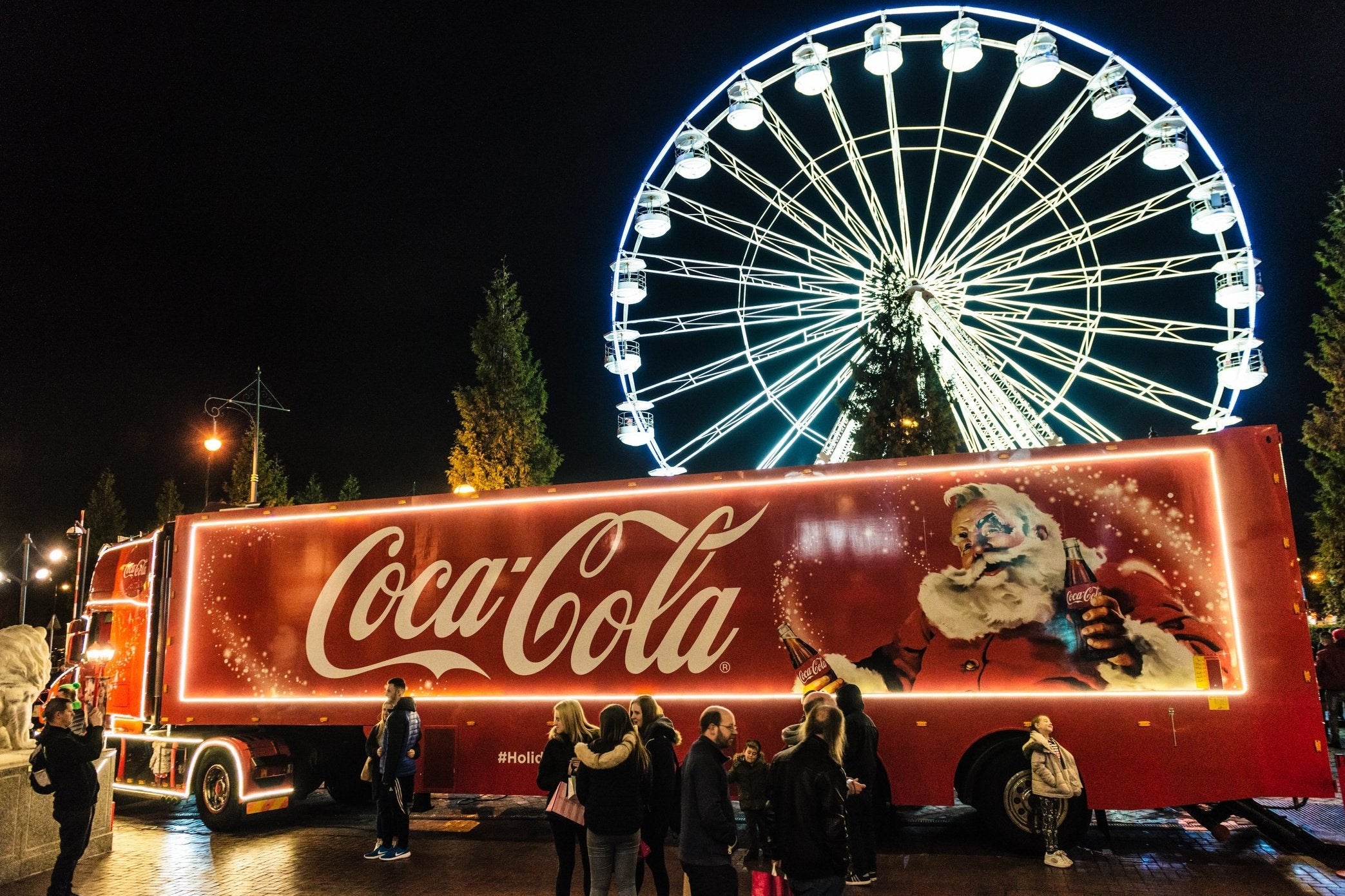Dentists condemn Coca-Cola Christmas truck tour: 'Fizzy drinks have no place in a child's diet'
Dentists say all fizzy drinks are harmful, including zero sugar versions

Your support helps us to tell the story
From reproductive rights to climate change to Big Tech, The Independent is on the ground when the story is developing. Whether it's investigating the financials of Elon Musk's pro-Trump PAC or producing our latest documentary, 'The A Word', which shines a light on the American women fighting for reproductive rights, we know how important it is to parse out the facts from the messaging.
At such a critical moment in US history, we need reporters on the ground. Your donation allows us to keep sending journalists to speak to both sides of the story.
The Independent is trusted by Americans across the entire political spectrum. And unlike many other quality news outlets, we choose not to lock Americans out of our reporting and analysis with paywalls. We believe quality journalism should be available to everyone, paid for by those who can afford it.
Your support makes all the difference.Over the years, the Coca-Cola Christmas truck has come to signal the start of the festive season for many people.
But paediatric dentists are warning parents not to allow their children to develop a taste for the fizzy drinks, which are handed out on the lorry’s annual tour.
The nationwide event, which started on Friday, sees the red truck make a total of 19 stops over the next month as it hands out free drinks in cities including Manchester, Leeds, Newcastle and London.
However, the British Society for Paediatric Dentistry (BSPD) has criticised the tour, which is now in its ninth year, as “harmful”.
Claire Stevens, NHS consultant in Paediatric Dentistry, said on behalf of the BSPD: “The motive for the tour can only be to encourage consumption of Coca-Cola brands.
“All of the drinks are harmful, including the zero sugar version, as they cause erosion, which baby teeth are particularly susceptible to.”
Stevens added: “We share and support the advice of Public Health England (PHE) that fizzy drinks should have no place in a child’s diet.”
The BSPD also published a tweet echoing Stevens’ comments, writing: “As the Coca-Cola trucks prepare to go out on the road tomorrow to give out free drinks in city locations, paediatric dentists remind parents of @PHE_uk advice – fizzy drinks have no place in a child's diet.”
A Coca-Cola spokesperson said: "The Coca-Cola Christmas truck tour is a one-off moment of fun in the run up to Christmas. As part of the experience we offer people the chance to enjoy a small can of Coca-Cola.
"We lead all our sampling with Coca-Cola zero sugar and expect more than 90 per cent of the samples we give away during the tour to be sugar-free. In line with our responsible marketing policy, we have a policy of not providing drinks to children under the age of 12, unless their parent or guardian is present and requests one.”
Last year, the Coca-Cola Christmas truck tour was scaled back after protests from public health campaigners.
The drinks giant stopped at a third fewer locations on the 2018 tour, visiting 24 locations, down from 38 in 2017.
Pressure has grown on Coca-Cola and other drinks manufacturers over the level of sugar in their products which campaigners say contribute to rising levels of diabetes and childhood obesity.
A 330ml can of Coke contains 35g of sugar, about the recommended daily intake for people aged 11 or older.
The BSPD stated that the typical paediatric dentist removes hundreds, if not thousands of decayed teeth every year, sometimes from children as young as two and three.
According to PHE, children aged between four and 10 years should have no more than the equivalent of 5 to 6 cubes of sugar each day, but are consuming on average 13 cubes.
“This means they are on track to consume around 4,800 cubes of sugar by the end of each year, more than double the maximum recommendation,” PHE states.
“Sugary soft drinks remain one of the main contributors of sugars to children’s diets, more than ice cream and puddings combined.”
The organisation adds that too much sugar can lead to weight gain, obesity and tooth decay, with a third of children leaving primary school overweight or obese, while around a quarter of five-year-olds suffer from painful tooth decay.
The findings follow recent figures that revealed the number of children aged four and under being hospitalised for tooth extractions has risen by almost a quarter in the last decade.
There were 9,206 extractions among this age group from 2015 to 2016 – up from 7,444 in 2006/7, according to data obtained by the Faculty of Dental Surgery at the Royal College of Surgeons (RCS).
The NHS recommends that parents take their child to the dentist when their first milk teeth appear.
This is so the child can become familiar with the environment and get to know the dentist. The dentist can also advise the parent on how to prevent decay and identify any oral health problems at an early stage.
Join our commenting forum
Join thought-provoking conversations, follow other Independent readers and see their replies
Comments